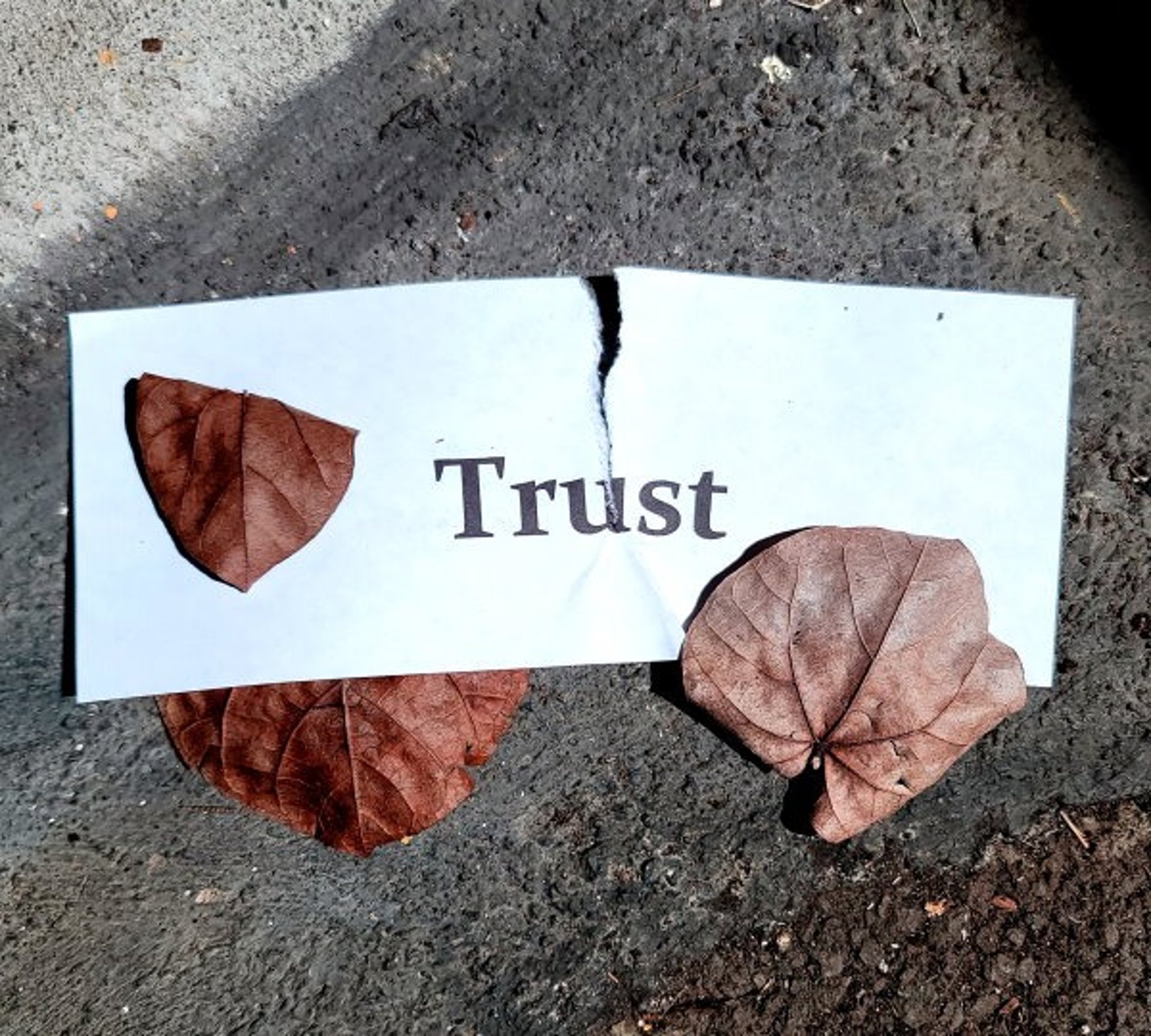
Embrace Change: 7 Steps to Rediscover Yourself After Midlife Crisis
Are you feeling lost or unfulfilled as you navigate through midlife? Do you sense that it’s time for a change but don’t know where to begin? How do you start trusting yourself after a midlife crisis?


As we navigate the winding paths of life, midlife often emerges as a crossroads—a moment where the familiar fades and uncertainty takes center stage. This period can feel like a crisis, with whispers of self-doubt echoing in our minds, but it can also be an extraordinary opportunity for transformation. Embracing change during this pivotal phase is not just about weathering the storm; it's about rediscovering who you are at your core. Imagine standing on the precipice of reinvention, ready to trust yourself again and embark on a journey toward profound self-acceptance.
In “Embrace Change: 7 Steps to Rediscover Yourself After Midlife Cirses,” we’ll explore how to turn what may feel like chaos into clarity. By learning to navigate through this tumultuous time with intention, you can emerge stronger and more aligned with your true self than ever before. Whether you're feeling lost or simply yearning for growth, these steps will guide you toward reclaiming your identity and purpose in this exciting chapter of life. Ready to embrace change? Let’s dive in!
Recognizing the Signs of a Midlife Crisis
Navigating through midlife can often feel like sailing into uncharted waters, and recognizing the signs of a midlife crisis is an essential first step toward emotional wellness. Many individuals encounter feelings of anxiety or sadness that seem disproportionate to their circumstances. For example, you may find yourself questioning past choices or feeling a sense of loss regarding dreams unfulfilled. This internal dialogue often manifests in heightened irritability, mood swings, or feelings of discontentment—emotions that frequently signal the need for midlife crisis recovery.
Understanding these emotional and psychological indicators, along with accompanying lifestyle changes and societal pressures, equips us with valuable insights on our journey toward self-rediscovery. By acknowledging the complexity of our experiences during midlife transitions and leveraging them toward growth rather than despair, we pave the way for profound change that allows us to embrace life's next chapter fully equipped both emotionally and spiritually.
Embracing the Power of Change
As we navigate through midlife transitions, it is essential to recognize that change can be a powerful catalyst for personal growth. This period presents unique opportunities to reassess our values and rebuild our identity. By leaning into these changes, we create space for self-exploration and rejuvenation, allowing ourselves to become who we want to be rather than merely conforming to past expectations. Seeking new experiences—such as taking a class in an unfamiliar subject, volunteering for a cause you care about, or even starting a creative project—can rekindle excitement and passion in life.
At its core, embracing change invites us to expand beyond our comfort zones while unlocking hidden aspects of ourselves that had long awaited exploration. It encourages us not only to confront what holds us back but also instills hope that new horizons are incredibly attainable if we dare to envision them clearly. As we dive deeper into this transformative journey during midlife, let’s remember: within every ending lies the promise of remarkable beginnings if only we choose to reach for them.
Reflecting on Your Values and Goals
As you embark on your midlife crisis recovery journey, taking the time to reflect on what truly matters in your life is crucial. This phase often serves as a wake-up call; with newfound clarity, you can identify the values that have shaped your past and those that will guide you toward a more fulfilling future. For instance, someone may realize that their previous focus on career advancement has overshadowed their desire for meaningful relationships. By prioritizing family connections or pursuing friendships based on shared interests, they can create a more satisfying balance in life.
Ultimately, reflecting on your values and goals allows for a stronger connection to self-discovery during midlife. By intentionally assessing what’s important to you and formulating realistic plans moving forward, you'll not only navigate this pivotal stage but also embrace it with enthusiasm and purpose. Asyou gain clarity in what drives you now, seize the opportunity to craft an inspiring narrative unique to yourself—one that embraces growth beyond midlife boundaries.
Exploring New Interests and Hobbies
Discovering new interests and hobbies can be a powerful avenue for personal growth during midlife. At this stage, many individuals find themselves questioning their past decisions and searching for purpose in a world that may feel suddenly different. By trying something new, whether it's painting, gardening, or learning a musical instrument, individuals not only discover fresh paths but also enhance their mental health awareness. Engaging in creative endeavors can help alleviate stress, foster relaxation, and spark joy—reminding us of the vibrant lives we are capable of leading.
Moreover, our hobbies can serve as gateways to reigniting lost passions that have taken a backseat over the years. You might uncover an old love for photography just waiting to be revived or discover a newfound excitement for cooking international cuisines after attending a local culinary workshop. Rediscovering these interests leads not only to creating joyful memories but also shifts our focus from what has been lost during midlife transitions towards what lies ahead—with renewed vigor and enthusiasm.
In conclusion, exploring new interests and hobbies presents an invaluable opportunity to find purpose amidst life changes. This exploration encourages self-discovery while cultivating vital connections with others who cherish similar pursuits. Embrace these new experiences wholeheartedly; they may very well lead you on an exhilarating journey toward rediscovering yourself after midlife!
Strengthening Relationships and Connections
Building a supportive social network post-crisis can significantly enhance your journey toward self-discovery. Seek out groups or communities aligned with your interests, whether it's book clubs focused on personal development, hiking groups celebrating nature's beauty, or online platforms sharing experiences related to midlife changes. Engaging with like-minded individuals not only fosters encouragement but also facilitates deeper conversations about shared challenges and triumphs. For example, forming a group dedicated to exploring new hobbies could spark friendships that last a lifetime and provide an invaluable sense of belonging as you recover from your midlife crisis.
Open communication is vital in strengthening bonds with those around you. Expressing needs and feelings can sometimes feel daunting; however, sharing your journey fosters genuine connection and understanding among friends, family members, or partners. By articulating what you're experiencing—whether it’s uncertainty about career choices or navigating relationship dynamics—you invite others into your world while allowing them to voice their own vulnerabilities. This openness strengthens trust and creates an environment where everyone feels comfortable discussing their aspirations for growth. The result? A resilient network capable of supporting each other through the ups and downs of life transitions.
In summary, now is the perfect opportunity to re-evaluate your inner circle while building new connections that resonate with who you are becoming post-midlife crisis recovery. A rich tapestry of relationships will serve as both comfort and inspiration as you continue rediscovering yourself at this pivotal stage in life. Embrace the shifts happening within yourself by fostering genuine connections—your future self will thank you for it!
Prioritizing Self-Care and Wellness
Mindfulness practices play an essential role in cultivating self-awareness during this pivotal time. Engaging in mindfulness exercises allows you to become attuned to your inner voice without judgment, fostering clarity around your feelings and thoughts. Activities such as yoga or guided breathing exercises can anchor you in the present moment, reducing overthinking about past regrets or future anxieties. By consciously tuning into yourself, you pave the way for personal insights that might otherwise be clouded by daily distractions and obligations.
Physical health is equally significant as it directly impacts how we feel mentally and emotionally. Regular exercise—even if it's just brisk walking or dancing in your living room—can kickstart endorphins and boost mood levels significantly. Joining a community class like Zumba or hiking groups can provide both physical activity and social interaction simultaneously. Strengthening your body helps create resilience against life's stressors while enhancing your overall sense of achievement.
Incorporating self-care into your life isn’t merely adding another task; it’s about making space for what rejuvenates you personally. It’s crucial to be forgiving of yourself on this journey; progress may come slowly but each small step counts towards reclaiming the joy within yourself. Ultimately, nurturing self-care will allow you to approach life after midlife from a renewed perspective filled with vigor and enthusiasm as you continue exploring who you are meant to be.
Seeking Professional Guidance When Needed
Support groups also serve as invaluable resources for shared experiences and collective healing. Whether organized through community centers or online platforms, these groups create safe spaces where individuals struggling with similar issues can connect. Hearing others' stories not only normalizes feelings of unrest but can also inspire new perspectives on facing life's challenges—it's comforting to know you’re not alone on this journey. Many participants find that these interactions foster both accountability and motivation, leading them to take proactive steps towards change.
The benefits of professional guidance during transition periods extend beyond just immediate relief from distressing emotions; they lay the foundation for long-term growth and success. A qualified therapist can help clarify your goals, establish realistic plans for achieving them, and even develop coping mechanisms for future stressors. Moreover, professionally guided discussions about self-care routines allow you to explore aspects of wellness that might have gone overlooked during turbulent times. By investing in yourself through therapy or support systems, you're taking crucial strides toward finding renewed purpose in your life post-midlife crisis.
It's never too late to make meaningful changes that enhance your quality of life during midlife transitions. Recognizing when additional support is necessary signifies strength rather than weakness; it’s a powerful decision towards self-discovery and improvement. Embrace the opportunities that come from seeking professional guidance—it could very well be the key catalyst in unlocking a vibrant new chapter filled with potential and fulfillment.
Conclusion: Embrace Your New Journey
As you navigate through midlife crisis recovery, take a moment to celebrate your progress and acknowledge the small wins. Each step forward, no matter how minor, is a victory worth recognizing. Practicing gratitude can help heighten your awareness of these achievements and enhance your overall positivity. Remember, embracing change is not just about overcoming challenges; it’s also about appreciating the journey of rediscovery.
Moving forward with confidence means welcoming continuous growth beyond midlife. Don’t view this stage as an end but as a new beginning filled with endless possibilities. Stay open to lifelong exploration and rediscovery of yourself and your passions. Embrace this exciting chapter with optimism, knowing that every experience enriches your life story. You have the power to create a fulfilling next act—go out there and seize it!
Frequently Asked Questions (FAQs)
Q: What are the first steps to take when starting to trust myself after a midlife crisis?
A: Begin by acknowledging your feelings without judgment. Reflect on your values and desires, and practice small decisions daily to build confidence.
Q: How can I cultivate self-acceptance during this transition?
A: Engage in self-compassion practices, such as journaling or mindfulness, which help you recognize your worth and embrace both strengths and imperfections.
Q: What role does setting goals play in rediscovering myself?
A: Setting achievable goals provides direction and purpose. Start with small, meaningful goals that align with your interests, gradually increasing their complexity.
Q: How can I better understand my passions and interests post-crisis?
A: Try new activities or revisit old hobbies that brought you joy. Reflect on what excites you, keeping an open mind about exploring different avenues.
Q: Is it normal to feel lost after a midlife crisis?
A: Yes, feeling lost is a common experience during this time of change. It's important to give yourself grace as you navigate through these emotions.
Q: Can connecting with others help me regain trust in myself?
A: Absolutely! Building a support network or joining groups of like-minded individuals can provide encouragement and shared experiences that foster self-trust.
Q: How do I stay motivated throughout this process of rediscovery?
A: Keep reminding yourself of your 'why'—the reasons behind your desire for change. Celebrate small wins along the way to maintain motivation and momentum.
Q: What if I don’t know what changes I want to make in my life?
A: That’s okay! Use this time for exploration—try various activities or engage in reflective practices like meditation or coaching to clarify what resonates with you most deeply.
















Video
Lifestyle changes often associated with midlife crises
Lifestyle changes are another hallmark of this phase. You might notice shifts in your daily routines or key relationships; perhaps you're spending less time with friends you’ve known for years or becoming detached from hobbies that once brought you joy. Individuals may pursue drastic lifestyle alterations, such as changing careers or moving to new locations, seeking relief from discomforts tied to traditional expectations of adulthood. Consider someone who always envisioned themselves climbing the corporate ladder only to realize they yearn for creativity instead—a powerful indicator that life transformation is underway.
The role of societal expectations
Societal expectations can play a significant role in exacerbating feelings associated with a midlife crisis. Messages we receive about what we should achieve by middle age often create unwarranted pressure and self-doubt. For instance, many feel compelled to meet conventional milestones—such as marriage, children, and career success—only to face disillusionment when they fail to align with these societal norms. It’s vital to acknowledge how these turbocharged external voices can stifle personal reflection and self-discovery during this transformative period in life.
Emotional and psychological indicators
Shifting your mindset towards positive outcomes
Letting go of fear to embrace new possibilities
Seeking opportunities for personal growth
Shifting your mindset is another crucial step toward embracing change. Instead of viewing midlife as a crisis filled with regrets or loss, reframe it as a pivotal moment defined by potential. This positive outlook lays the groundwork for productive actions and fresh beginnings. For example, when faced with an unexpected career shift or relationship change, approach these events with curiosity rather than fear. Ask yourself what skills you can develop during this transitional time or how these situations may prompt you to step into something more fulfilling.
Letting go of fear plays an integral role in embracing the possibilities that lie ahead. It involves recognizing the limiting beliefs that have held us back and working consciously to dismantle them through mindfulness practices such as meditation or journaling. By becoming aware of our thoughts and feelings regarding change—acknowledging fears without letting them dictate our choices—we empower ourselves to move forward confidently. Imagine embracing the challenge of picking up an exhilarating new sport; pushing aside initial trepidations allows us to experience not just the joy of discovery but also fosters resilience along the way.
Assessing what truly matters in life
Creating a vision for your future
Setting achievable goals for personal fulfillment
Once you've identified your core values, the next step is goal setting after 50. This process should aim at aligning your aspirations with these rediscovered values, ensuring that all of your efforts resonate with who you are at this moment. For example, if one of your fundamental values is creativity but it's been sidelined for years due to work commitments, set achievable goals around engaging in artistic pursuits—whether that's joining a painting class or writing that novel you’ve been dreaming about. Start by breaking each goal down into manageable steps; small victories will motivate you and reinforce the belief that change is possible.
Creating a vision for your future becomes particularly empowering during this transformative period. Imagine where you'd like to be in five or ten years: What does fulfillment look like for you? Visualize aspects like travel experiences, personal accomplishments, or simply being surrounded by loved ones. Documenting this vision through journaling or even mood boards can serve as a compass when challenges arise. Overcoming challenges is part of any transition; having a clear view of your aspirations helps maintain focus and resilience amid obstacles.
The benefits of trying something new
Connecting with like-minded individuals is another standout benefit of exploring new hobbies. Joining a hiking club or a book club offers the perfect platform to meet others who share similar passions and aspirations. These connections can cultivate deep friendships as well as provide emotional support during transitional times. Being surrounded by those who encourage growth fosters an environment where you can comfortably share your experiences while motivating each other toward collective fulfillment.
Connecting with like-minded individuals through shared activities
How hobbies can reignite passions ?
Re-evaluating existing relationships and their impact on well-being
As you navigate the waves of midlife transition, it’s essential to pause and evaluate the relationships that enrich your life. Many individuals find themselves in a whirlwind of emotions during a midlife crisis, often leading to questions about who truly supports their growth and happiness. Take this time to reflect on your existing relationships—are they nurturing or draining? Consider aspects such as mutual respect, support for personal goals, and emotional resonance. Keeping a gratitude journal can help clarify which connections evoke joy and inspire you while recognizing those that may be holding you back is equally important.
Building a supportive social network post-crisis
Communicating openly about needs and feelings
Developing routines that promote mental, emotional, and physical health
As you navigate through the waves of midlife transitions, prioritizing self-care becomes imperative for maintaining your mental, emotional, and physical health. Developing a consistent routine that nurtures all three aspects of well-being can create a solid foundation to support your journey of rediscovery. For instance, consider dedicating time each morning for a ritual that resonates with you—perhaps a blend of meditation, journaling, and light stretching. These activities not only start your day on a positive note but also help in centering your thoughts and aligning them with your intentions.
Understanding the significance of mindfulness practices
Incorporating exercise for overall well-being
Knowing when to consult therapists or counselors
Navigating the complexities of midlife can often feel overwhelming, and recognizing when to seek professional help is an important step in your personal journey toward rediscovery. If feelings of sadness, anxiety, or confusion begin to disrupt your daily life, it may be time to consider consulting a therapist or counselor, scholar. These professionals are trained to assist individuals grappling with challenges common during this transitional phase, such as identity crises or existential questions. Engaging with a mental health expert can provide you with tailored strategies that promote stability and resilience throughout your midlife crisis recovery.
Utilizing support groups as a resource
The benefits of professional guidance during transition periods
Discover tips for sleep, detox, and mindfulness.
© 2024. All rights reserved.
